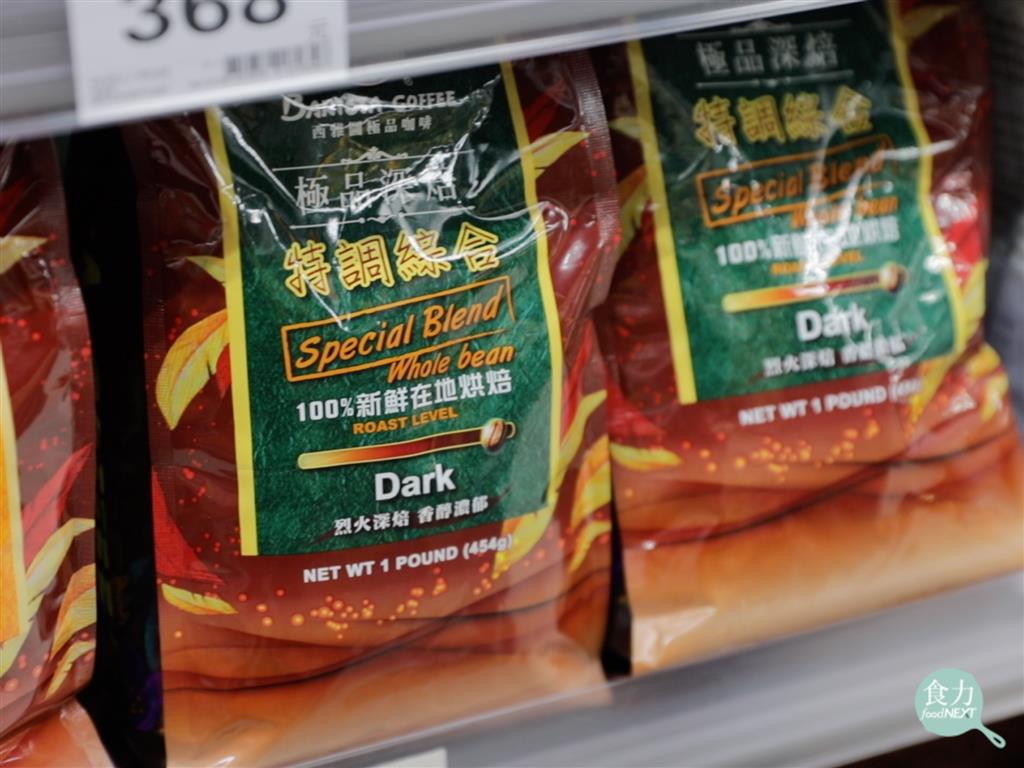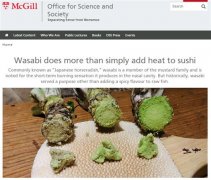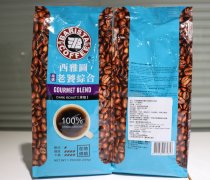Why is it claimed that Arabica beans can be sold at a high price? What are the benefits of coffee adulteration?
As early as a few years ago, the saying of 100% Arabica suddenly emerged. in fact, this situation is for commercial coffee beans, while in the boutique coffee industry, 95% of the boutique coffee beans are Arabica coffee beans, because Shangchao coffee is synonymous with low-cost coffee. In boutique coffee shops, only latte beans are specially mixed with Robusta coffee beans. To increase the feeling of mellow.

Seattle Gourmet Coffee boasts "100% Arabica beans" but not 100% Arabica! After "Europol" and "INTERPOL" have detected nine cases from Germany, Switzerland and Portugal in April 2019, this is the first time that coffee beans have been mixed in the market in Taiwan. how can Food be sure that Seattle is mixed?
Arabica beans and Robbosa beans are difficult to tell with the naked eye by non-experts
The two most famous varieties of coffee are Arabica and Robusta, which have different commercial value due to their different planting methods, processing methods, flavor and so on. Robusta is almost half the price of Arabica! Because of this, the price difference has led unscrupulous businessmen to add robusta coffee beans or other beans to Arabica coffee beans and label them as "100% Arabica coffee beans" to gain the price difference.
Although Arabica and Robusta coffee raw beans can tell the difference visually, after baking and grinding, the difference may not be obvious. To further determine whether there is adulteration, chemical analysis is needed to further determine the difference.
"16muro-methyl caffeine" is an excellent target for testing whether it is not 100% Arabica!
Arabica and Robusta differ not only in their appearance but also in their chemical composition. Coffee contains diterpenes (diterpenes), including caffeine (cafestol), caffeinol (kahweol) and 16muro-methyl caffeine (16-O-methylcafestol). The first two are sensitive to light and heat, but they are rare or almost absent in Arabica beans, but they are thermostable and will not disappear after baking at high temperature. It can be detected in both raw and cooked coffee beans, so it is an excellent target for testing whether it is non-100% Arabica!
At present, there are two international methods for testing 16Mel O-methyl caffeol.
At present, there are two methods for testing the presence of 16muro-methyl caffeol in the world, one is "German Standard Analysis method DIN 10779", and the other is "Nuclear Magnetic Resonance (NMR)".
In the EU Food Safety search Operation "Operation OPSON" jointly launched by Europol and Interpol, it is DIN 10779 regulated by the Federal Office for Consumer Protection and Food Safety (BVL) in Berlin. Tentamus Analytics Taiwan Co. Ltd.), the Taiwan branch of Germany's Tentamus Group GmbH Group, was sent to Germany's "Tengde QSI Laboratory" for testing, and NMR technology certified by the German Certification and Accreditation Board (DAkkS) was used to test whether the sample contained 16murine O-methyl caffeol.
NMR will know if it is adulterated in less than an hour!
What's the difference between the two methods? DIN 10779 is distinguished by high performance liquid chromatography (HPLC) or pressurized high performance chromatography, but this method takes 3 days to experiment. However, the test accuracy of NMR technology is as high as that of DIN 10779, but the test efficiency is faster, and the test results can be obtained within one hour. It is a more commonly used test method for the detection of 16meryl O-methyl caffeol in the market.
Generally speaking, Arabica is of higher quality than robusta beans, and although Robusta also has varieties of better quality than Arabica beans, it is still a minority. As the price of Robusta is much lower than that of Arabica, it is often used in instant coffee and instant coffee products. If coffee beans marked 100% Arabica are mixed into them, they will become a sharp tool to reduce costs, and the possibility of blending will be greatly increased.
Taiwan's coffee market is getting bigger and bigger, and most coffee beans are imported from abroad, and the industry should also strengthen self-quality checks, and should the government also begin to pay attention to the possibility of false labeling of coffee bean products? in order to prevent consumers from being deceived by believing in the label!
- Prev

What's the best thing to eat with mustard? There was a big difference between horseradish, mustard and horseradish!
Eating Japanese food, especially sashimi, is bound to touch "Washami". The stereotype is said to help sterilize and protect health, but some experts jump out and say, "you've all been deceived!" "the real" Washami "wasabi does inhibit bacteria, but it happens that the square
- Next

Are all the coffee on the market 100% Arabica beans? Disassemble the coffee bean supply and watch it.
Arabica has a specific use, and there is a very obvious difference in taste between Arabica, which is generally used in instant solution, or in lattes to increase the thickness of alcohol. What you should know about food Taiwan's domestic raw bean merchants except that some of them will go to the producing areas to buy them.
Related
- A one-day flower show brings 130 million yuan in orders! Nanhai, this Phalaenopsis exhibition is amazing
- What do the flower language and meaning of Lutheran tree mean? Precautions for planting Lutheran tree
- Encounter Chaoshan Kongfu tea, not without this cup of Phoenix single clump
- The durian market in Vietnam and Thailand is flooded. The price of imported durian has plummeted by 30-40% in a month.
- Shanghai solved the problem of local vegetable supply by planting 80,000 mu of green leafy vegetables.
- Wageningen University has become the best agricultural university in the world for the seventh time in a row.
- The strongest export season of South African grapes is full of challenges, with exports to Russia falling sharply by 21%.
- Sri Lanka is on the verge of bankruptcy, "Tea for debt" Organic Agriculture Revolution aggravates the Food crisis?
- Turning waste into earthworm manure and worm manure into organic fertilizer-A new choice for auxiliary farming
- Organic rice growers shoulder the responsibility of nurturing agricultural talents! Yinchuan Sustainable Farm with Organic Life Camp

